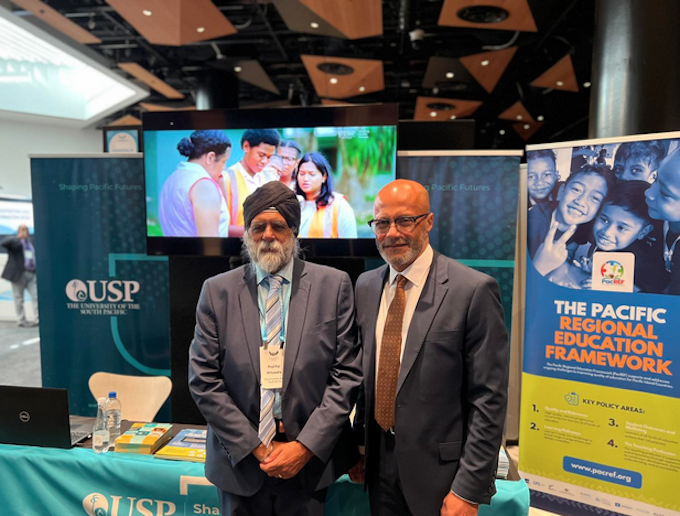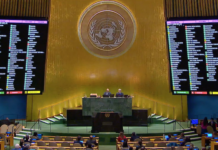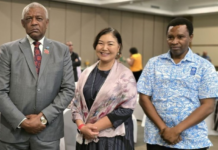
“The University of the South Pacific (USP) has been and continues to be a bedrock for regionalism. A resource owned by the region; for the region and a precious institution that needs to be protected in line with the vision of our forebearers.”
This was the message by USP vice-chancellor and president Professor Pal Ahluwalia during his ministerial banquet speech at the Pacific Education Ministers Conference (CPEM) at Auckland University this week.
The conference theme was “Empowering Education for Pacific People”.
“I am acutely aware that we stand on the shoulders of giants; Pacific leaders who had the prescience of their ancient navigating forbearers, to set up an institution of higher learning and to set it on a course over the horizons in pursuit of two things excellence and equity,” he said.
Professor Ahluwalia said USP graduates had filled critical roles and many had gone on to be leaders across all sectors in their countries.
“This visionary foundation laid down by our Pacific forebearers has made USP the greatest success story of regional cooperation, where the richness of diversity of experiences has formed the foundation of hope and choice; and has established a network for learning to know; learning to do; learning to be; and learning to share,” Professor Ahluwalia said.
The main focus in the early years of USP had been on teacher education to support member governments with their education workforce as they gained their independence, over the years.
Shifts in regional priorities
However, USP had expanded its offerings in response to shifts in regional priorities and needs.
Professor Ahluwalia added that as these regional needs had become more divergent, the prospects of adequately meeting them — “while remaining true to our ongoing commitment to excellence and equity” — had become increasingly become a difficult challenge with diminishing resources.
“I am immensely proud of USP’s achievements and profoundly passionate about the exciting possibilities before us and over our horizons,” he said.
“However, I am under no illusions that we face sizeable challenges and to realise our full potential as a regional university, we need to be at our best to efficiently and effectively teach, learn and research in the service of our regional family.”
Professor Ahluwalia stressed the need to listen to the people as well as stakeholders, valuing relationships and partnerships in new and innovative ways — “and caring for regional communities and natural resources that we haven’t collectively cared enough for”.
“It is our responsibility now to ensure a cohesive articulation of tertiary qualifications across this network that address specific national needs of members of our family, while also pooling resources so that we can do things together where it makes sense to do so.”
Professor Ahluwalia said USP had had to be responsive and resilient and had much more to gain than to lose from genuine innovation.
“We are best positioned to claim leadership in areas no other organisation has the regional mandate, capability, need or courage to pursue,” he added.
Republished with permission.













































